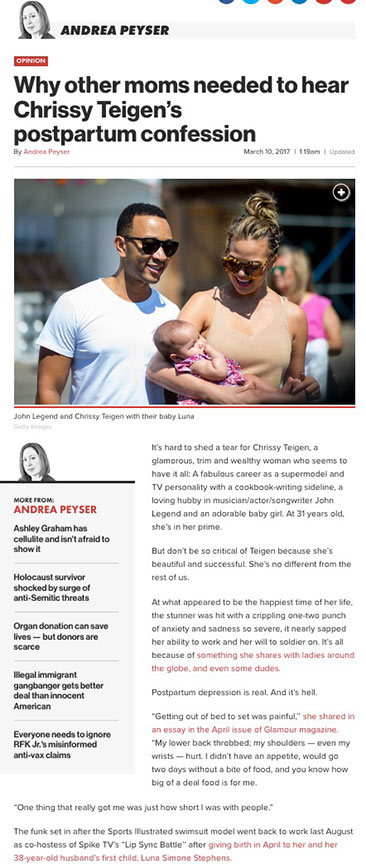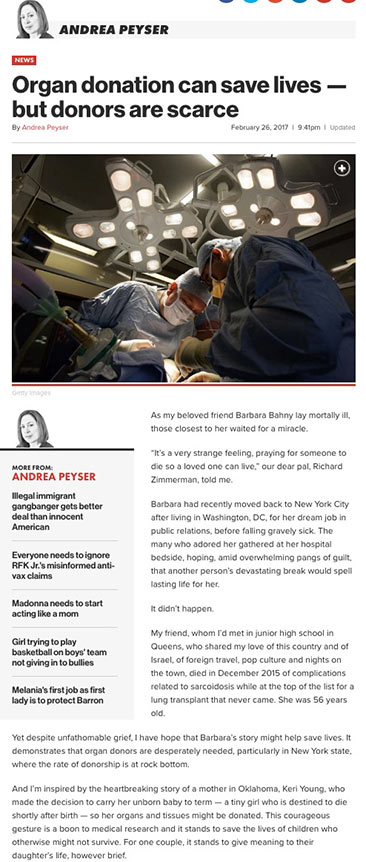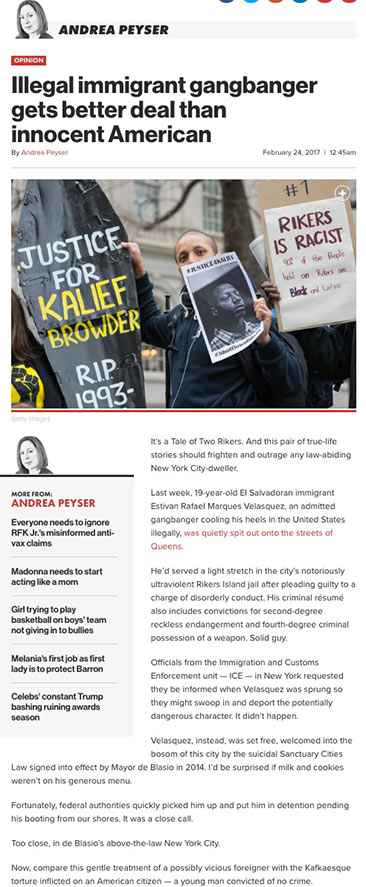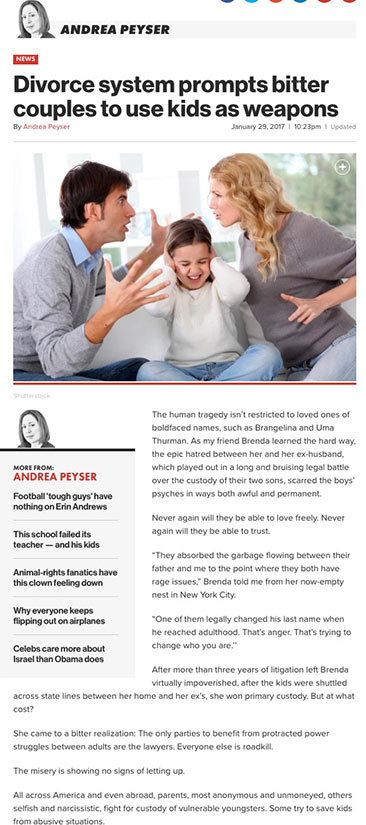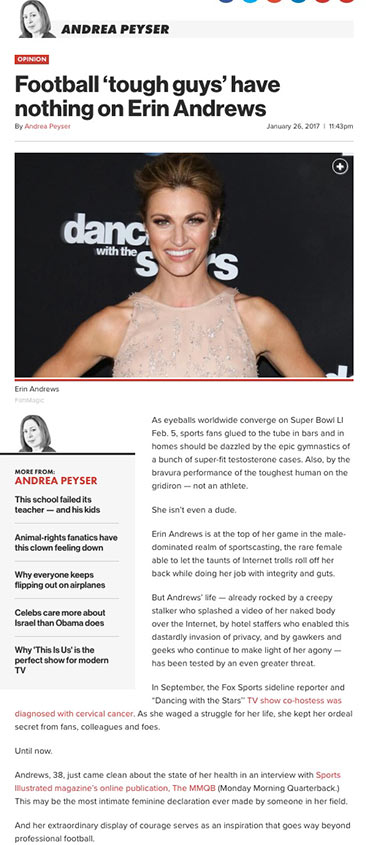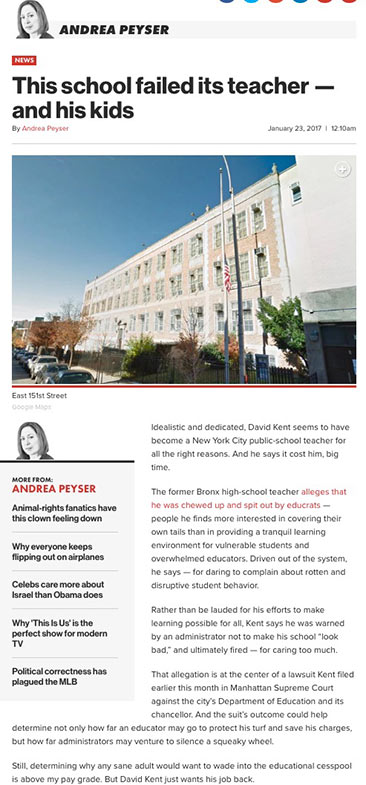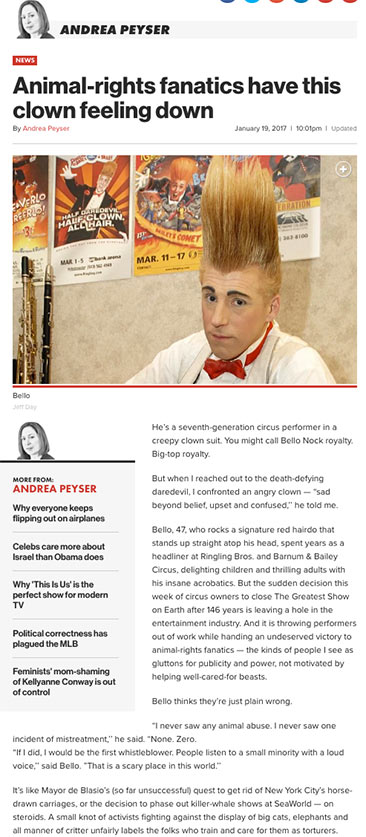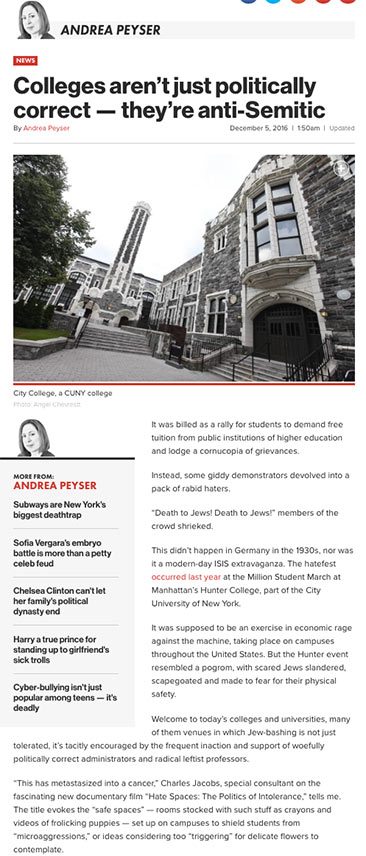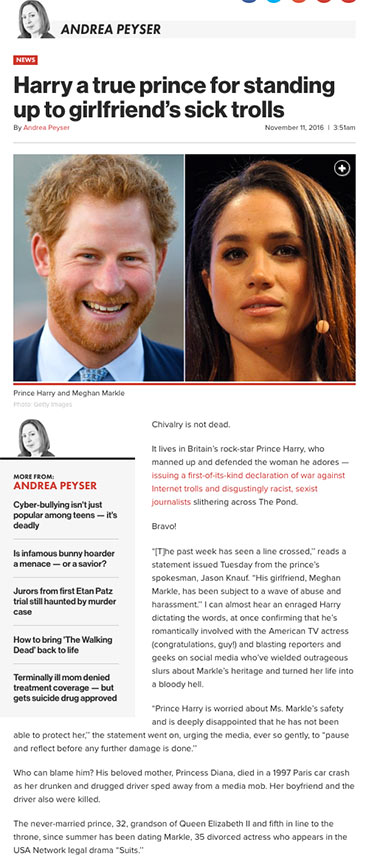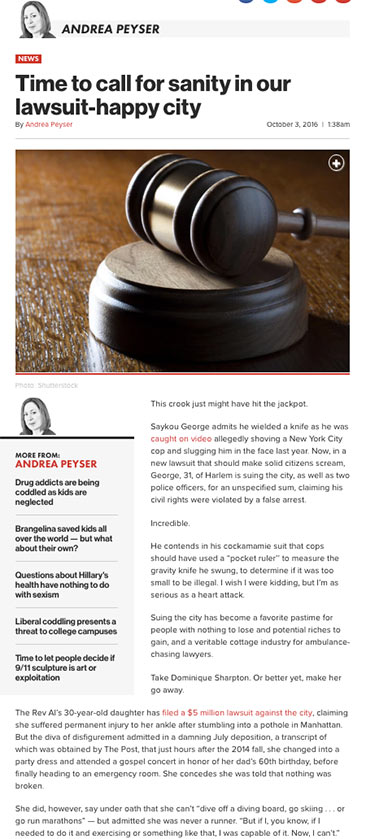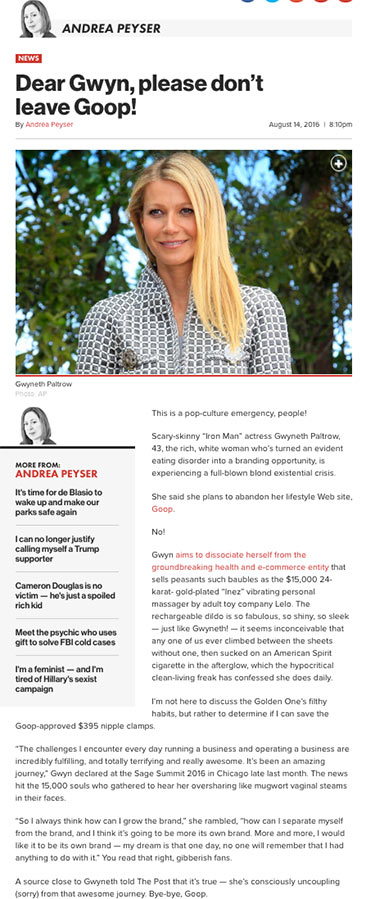©2007-2024
Andrea Peyser and andreapeyser.com; No Reuse without permission.
•Contact Us •Site Map •Biography •Appearances •Book Excerpt •Archive
Saturday April 20, 2024

Read more content on NYPOST.com
By Andrea Peyser
November 7, 2016
Cyber-bullying isn't just popular among teens - it's deadly
The girl was smart, pretty — and obsessed with the idea of taking her own life.
She was just 14 years old.
What drives a child to such a dark place — in which death seems the logical escape from unbearable suffering?
The answer is both terrifying and as common as homework. The teen, a student at a highly regarded New York City public middle school, was targeted for torment by a gang of Mean Girls.
Her classmates “made fun of her because she was skinny. Other girls were more developed,” Bonnie Eaker Weil, Ph.D., a family therapist who counseled the teen and her parents, told me. Her folks were in denial.
The girl “cried herself to sleep every night.” So the psychotherapist took it upon herself to call the principal of her patient’s school.
The response floored her.
“It’s not my responsibility,” the school chief said, according to Dr. Eaker Weil. That’s because the severe body-shaming wasn’t conducted at students’ lockers, on the schoolyard or anywhere on educational property, but over the Internet. Eaker Weil finally told the principal that if her client should die by her own hand, “It’s on you.”
That was nine months ago. The wicked teasing appears to have stopped before the new school year and the girl is fine physically. But she may endure permanent emotional scars.
Since the dawn of textbooks and cliques, schools have been veritable jungles in which the strong survive and the weak are preyed upon. But the rise of social media has made bullying organized and often anonymous. Education officials either have difficulty policing it — or try to ignore it altogether.
It happens in public and private schools throughout the United States and beyond, and continues in institutions of higher education. A group of male students at the elite, public Hunter College HS on the Upper East Side, which serves brainy youngsters in grades 7 through 12, behaved like gay-bashing, misogynist jerks, The Post’s Selim Algar reported last week.
The Mean Guys, who call their band of idiots “MILK,” have been using an online chat room to rate the looks of girls, hurl homophobic slurs and trash peers they despise, according to leaked screen shots. This, at a school overseen by the City University of New York that’s typically ranked as among the top in the country, if not the best.
While some students applaud the person who exposed the chat room — dubbed “Snowden” after government leaker Edward Snowden — others aren’t so sure.
‘For teens, being ostracized is worse than dying. It can affect their lives and their self-esteem forever.’
Taking to Facebook like an electronic confessional, some questioned whether anyone should be punished for messages they intended to be private.
But words can maim. Hunter’s acting director said school honchos are investigating whether any school regulations or policies were violated.
At least since Tyler Clementi, an 18-year-old freshman at Rutgers University in New Jersey, committed suicide by jumping off the George Washington Bridge in 2010, national attention has focused on cyberbullying and the struggles of lesbian, gay, bisexual and transgender youths. Three days before Clementi’s death, his roommate, Dharun Ravi, and a female pal watched him kiss a man via a secret Web cam planted in the dorm room the two young men shared, and Ravi tweeted gossip about it.
But his convictions for a host of crimes were overturned by an appellate court, and Ravi, now 24, pleaded guilty last month to a count of attempted invasion of privacy. A judge sentenced him to no more time behind bars than the 20 days he had already served.
Is there more bullying today, or are members of the public simply talking about it more? It’s unclear, but the fight against online tyranny has drawn an anti-cyberbullying campaign by former presidential paramour Monica Lewinsky.
Melania Trump said she intends to fight it if she becomes first lady after her husband’s presidential election Tuesday. What irony!
She seems clueless that her hub, The Donald, infamously directed Twitter and real-world rants at folks from women to his fellow Republicans.
The latest studies reveal that about 1 in 3 American students reported being bullied at some point in the real world — through physical attacks, verbal taunts or gossip-spreading — and 43 percent said they were targeted in cyberspace.
Some admitted they participated in it.
“For teens, being ostracized is worse than dying,” Dr. Eaker Weil told me. “It can affect their lives and their self-esteem forever.’’
It’s time that school officials, all the way through those in colleges and universities, impress upon young people the urgent need to cut the crass acts. Cruelty can be a matter of life and death.


